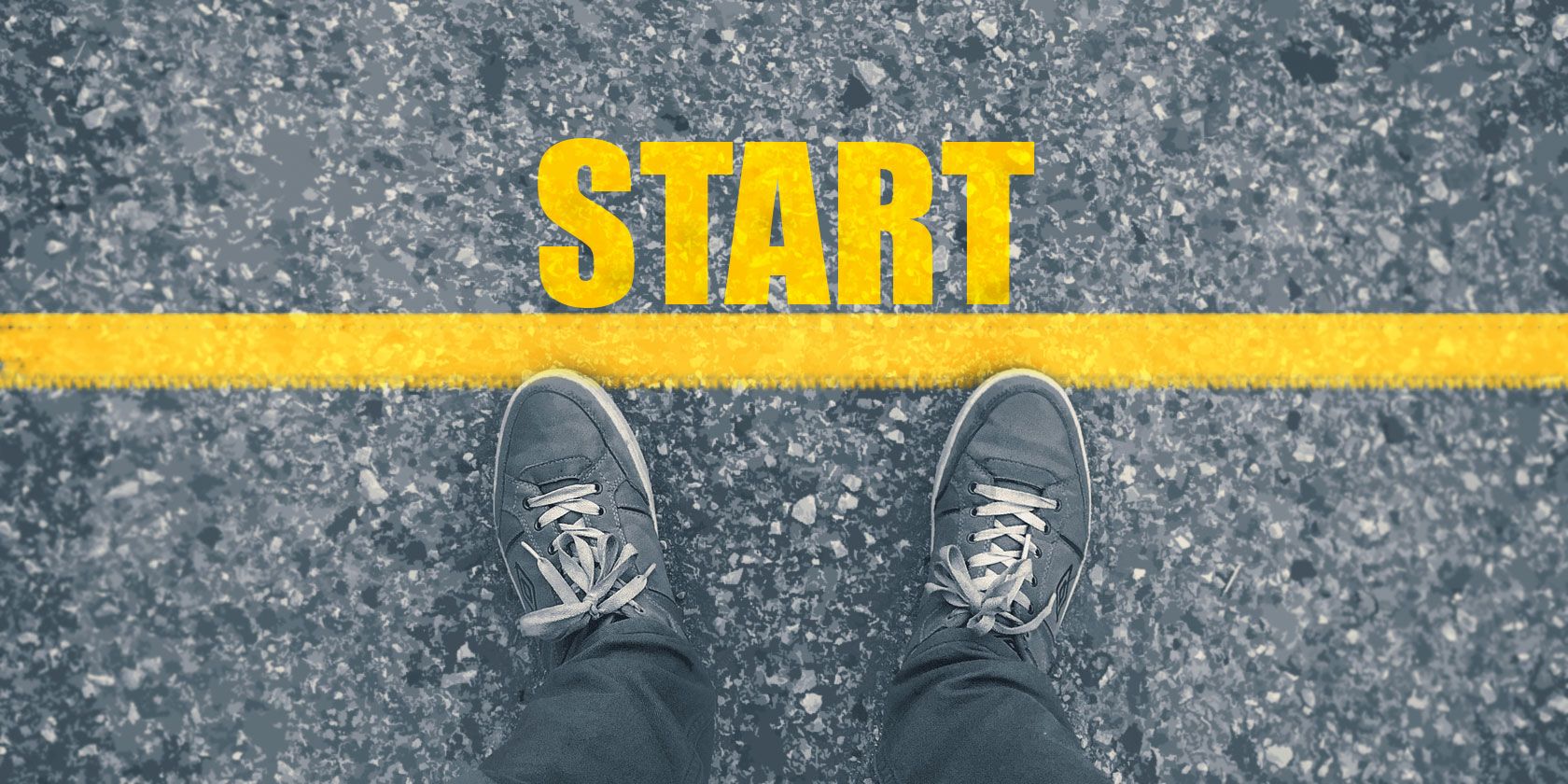A journey of a thousand miles begins with a single step. Laozi artfully captured the importance of just getting started when you're facing a monumental task -- but he didn't provide much advice on taking that first step.
Getting started can be the most difficult part of any task, from the smallest project to the largest individual change. Taking that first step can get you moving toward your goal. But when your feet are rooted to the ground, it can be the hardest part of the whole process.
To help you out, here are a few ways to kickstart your project, no matter what it is.
Break It Down
Any project can be broken down into smaller pieces. Let's look at the example of a coding project. Here's one way you might break it down into steps:
- Outline project goals.
- Detail project and how it meets goals.
- Research pre-made modules and libraries.
- Draft code.
- Test.
- Edit and update code.
- Submit.
This is a serious abstraction, but you get the idea. The same can be done with a self-improvement project. Let's say you want to lose weight. Here's how you might break that one down:
- Get current weight.
- Decide on reasonable goal weight for six months.
- Set monthly goals.
- Make nutrition plan.
- Make exercise plan.
- Post goals online.
Again, you could add many more steps, but the general idea is the same. Your project will feel much more manageable when the first step is "outline project goals" instead of "write a new program." Similarly, getting your current weight and setting a goal for six months down the road is easier to tackle than "lose 50 lbs."
No matter what project you're looking to take on, break it down into small steps, and make sure the first couple steps are especially manageable. If they can be done in a few minutes, even better. That's the first step on your journey.
Visualize the Process
A lot of research has gone into visualization and the effects it has on the human brain. It seems like a minor thing, not likely to make much of a concrete difference in your life, but some scientists say that it can actually be very motivating.
Picture yourself doing whatever it is that you want to do. Don't picture yourself from far away, though; imagine the experience through your own eyes. Focus on your senses: what do you see, hear, feel, or smell? What does it feel like to experience the success you're working towards? These are key steps of visualization.
Real Simple has a few great examples of specific visualizations that you can use to help you get started. I'd encourage you to write down your visualizations, too -- grab a notebook and pen and write out what you're seeing and feeling. It adds even more weight to the practice.
Visualization might not feel like you're taking that first step. But it's an important part of motivation and planning, and will definitely get you closer to your goal.
Commit 10 Minutes (or 5... or 1)
There are all sorts of reasons why it can be difficult to get started. But one of the most common is committing time. We're all super busy, and the idea of adding something else into your schedule is daunting. But what if you only had to commit ten minutes? Could you give up ten minutes of skimming Facebook or binging on The Walking Dead?
What about five minutes? Or even a single minute? It doesn't sound like much, but even committing to one minute of an activity can help you build up the motivation and momentum to keep it going later. It sounds ridiculous, but it really works.
A related habit to get into is to immediately complete any task that will take less than two minutes. If you're in the middle of something, and you receive an email that you need to quickly respond to, don't add it to your to-do list. Just do it. It'll help you keep your task list uncluttered, which helps keeps your brain clear... which is helpful in taking that first step.
Make Your Project Pleasant
Francisco Sáez of FacileThings has an interesting strategy for getting to work on difficult projects: he goes out to breakfast at his favorite coffee shop. He gets his favorite breakfast, and he starts brainstorming in a notebook. This pleasant and low-stress environment helps him get ideas down on paper and build up his motivation for getting started.
You might not have the option of going out to breakfast when you need to get started. But you can apply the same principles. Get a fancy coffee that you love on the way to work. Sit down with a good friend to discuss the particulars of your plan. Go for a walk in your favorite away-from-it-all place to brainstorm. Wear your favorite clothes on the day you plan on getting started.
Keep in mind that these things are different from rewarding yourself for progress. That can be motivating as well, but it may not work as well for getting started. Instead, focus on being as happy, relaxed, and comfortable as possible when you get started.
Watch a Motivational Video
This sounds cheesy, and it is... but it also works. Our managing editor watched three motivational videos a day as an experiment. And it changed his life. These videos can feel very contrived, but they have a lot of great things to say.
You don't need to watch three of them every day, or even one every day. But when you're having trouble getting started with something, spending five or ten minutes watching one can be great way to get the work in first gear. Just head to YouTube and search for "motivational video" and include a word that you think might be interesting; "success," "procrastination," "start," or anything else. See what comes up.
If this strategy doesn't appeal to you, there are plenty of motivational blogs that will work, too. I really enjoy James Clear's articles, and there many others available. Pick a few that you like and read a post. Then take that first step!
Share Your Best Strategies
Of course, everyone has different needs. Maybe journaling helps you spark change. Or committing a few minutes is more of a surefire way. Maybe you can't stand motivational videos. Don't stop for an excuse. It's not easy. But it's the only way that you'll move toward your goals.
How do you take the first step when it feels really tough? Share your personal success stories and tips in the comments below!



